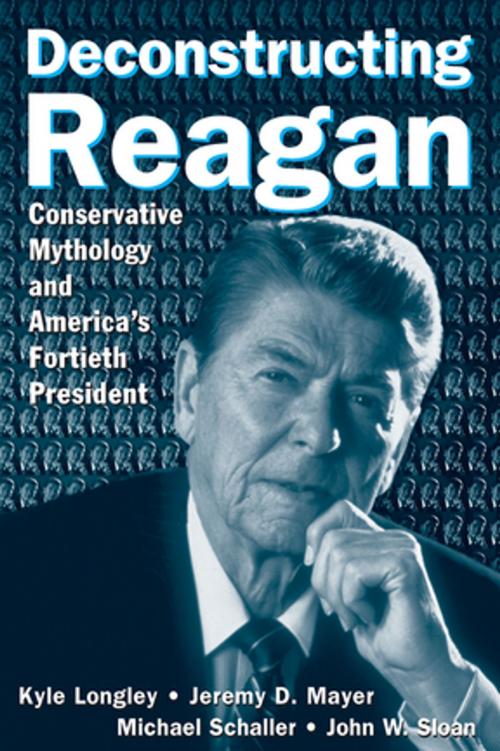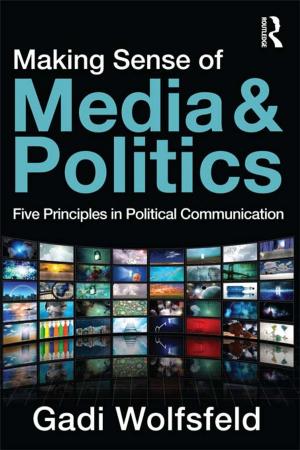Deconstructing Reagan: Conservative Mythology and America's Fortieth President
Conservative Mythology and America's Fortieth President
Business & Finance, Economics, Nonfiction, Social & Cultural Studies, Political Science| Author: | Kyle Longley, Jeremy Mayer, Michael Schaller, John W. Sloan | ISBN: | 9781317473237 |
| Publisher: | Taylor and Francis | Publication: | January 28, 2015 |
| Imprint: | Routledge | Language: | English |
| Author: | Kyle Longley, Jeremy Mayer, Michael Schaller, John W. Sloan |
| ISBN: | 9781317473237 |
| Publisher: | Taylor and Francis |
| Publication: | January 28, 2015 |
| Imprint: | Routledge |
| Language: | English |
Although he left office nearly 20 years ago, Ronald Reagan remains a potent symbol for the conservative movement. The Bush administration frequently invokes his legacy as it formulates and promotes its fiscal, domestic, and foreign policies. His name is watchword for campus conservatives who regard him in a way that borders on hero worship. Conservative media pundits often equate the term "Reagan-esque" with personal honor, fiscal rectitude, and unqualified success in dealing with foreign threats. But how much of the Reagan legacy is based on fact, how much on idealized myth? And what are the reasons - political and otherwise - behind the mythmaking? "Deconstructing Reagan" is a fascinating study of the interplay of politics and memory concerning our fortieth president. While giving credit where credit is due, the authors scrutinize key aspects of the Reagan legacy and the conservative mythology that surrounds it.
Although he left office nearly 20 years ago, Ronald Reagan remains a potent symbol for the conservative movement. The Bush administration frequently invokes his legacy as it formulates and promotes its fiscal, domestic, and foreign policies. His name is watchword for campus conservatives who regard him in a way that borders on hero worship. Conservative media pundits often equate the term "Reagan-esque" with personal honor, fiscal rectitude, and unqualified success in dealing with foreign threats. But how much of the Reagan legacy is based on fact, how much on idealized myth? And what are the reasons - political and otherwise - behind the mythmaking? "Deconstructing Reagan" is a fascinating study of the interplay of politics and memory concerning our fortieth president. While giving credit where credit is due, the authors scrutinize key aspects of the Reagan legacy and the conservative mythology that surrounds it.















